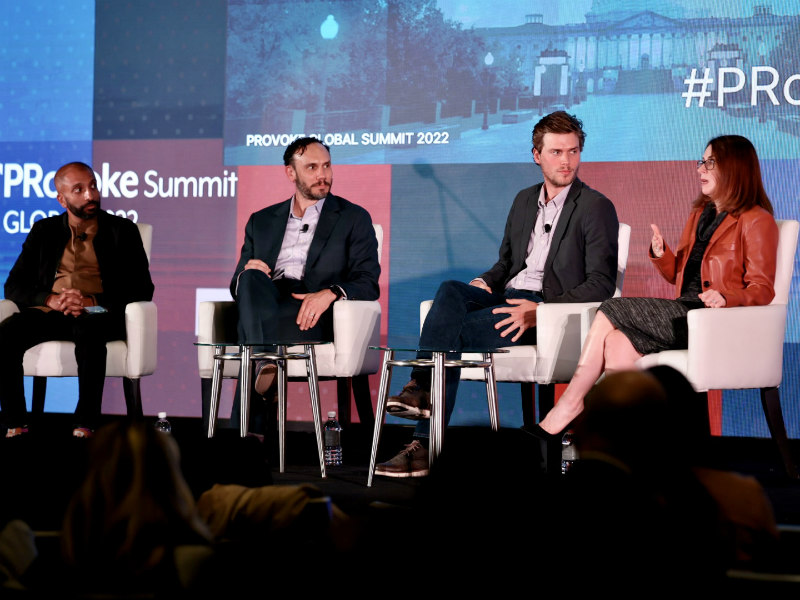Cathy Wallace 25 Oct 2022 // 8:27PM GMT

WASHINGTON, DC — Using AI in healthcare communications can "lead to massive upsides for patients," but the industry has to battle with regulation and explaining what can be seen as "a black box" if the technology is to be more widely adopted, PRovokeGlobal's Summit heard today.
"AI is a tool within many tools that can be combined together to help patients and physicians," Romain Bogaerts, director of product and engineering at IPM.ai, said during a panel discussion.
"AI can be seen as a buzzword, but it's about applying statistical models to big data to get insights that can help communications professionals make better decisions," he added.
Delegates at the Global Summit heard how AI is being applied to digital care transformation, such as diagnosing diseases like osteoporosis. "Patients can walk around for years with small fractures in the spine they think are stiffness, until they fall and break another bone. We've developed an algorithm to identify fractures in CT scans for other conditions like respiratory diseases, that can make patients aware," said Brandon Drew, VP and head, US insights to impact at UCB.
Emily Poe, group president integrated comms at Real Chemistry, said AI is tackling a big issue in healthcare by helping recruit a more diverse population for clinical trials. "This is a huge issue in healthcare and clinical development and it's an important place for us to intersect and try and change healthcare outcomes."
The panel agreed AI isn't being adopted quickly enough, given the potential of the technology, but acknowledged regulation and data protection present a huge challenge. "We're in a regulated industry and rightly so," said Drew. "We've had datasets we've used in ways in the past, which would be a great application for new analysis, but we don't have the necessary authority to do that."
"30% of all the data in the world comes from healthcare and it's probably under-utilised," Bogaerts added. "The way we look at it is we want to empower people with AI, but not have AI necessarily making the decisions."
Communicating the nature of AI is another challenge the industry has to overcome for faster and more widespread adoption of the technology. "You're trying to explain information that can help with clinical decisions or help better understand a disease, but there has to be a comfort level and people need to know it's not coming from some unknown dataset or magical wisdom," Drew said. "It's hard to find people who have a knack for being able to break down technical comms into something understandable and relatable."
Poe said AI has the potential to transform the job of healthcare communicators. "We haven't reached the point whereby people don't need to know how to write, but we have a lot of tools via AI that help them write. I think in future it's going to be critical to still understand how to communicate effectively, but we may be thinking more about how we're leveraging the tools that are becoming available to us and less about us just sitting there typing."



































.jpg)

















